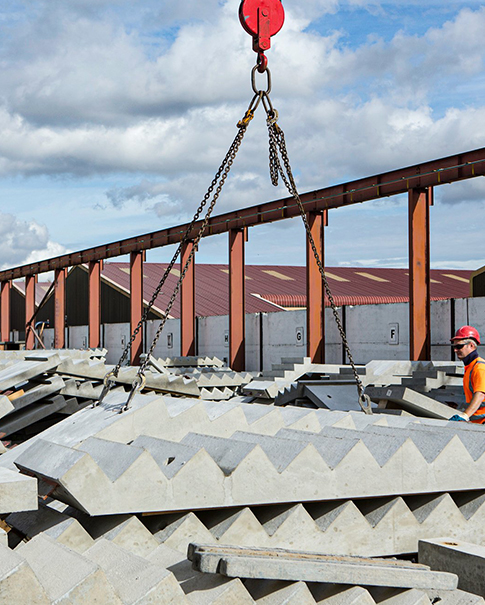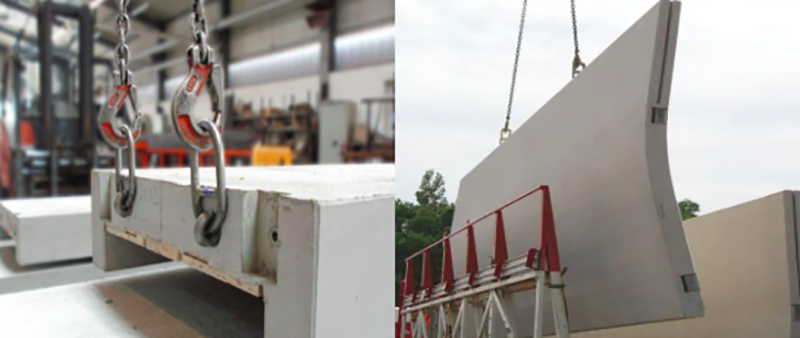-

Envie-nos um e-mail
sale@lscmagnetics.com -

Número de contato
+86 -13559234186

Envie-nos um e-mail
sale@lscmagnetics.com
Número de contato
+86 -13559234186
Compreensão abrangente do princípio de funcionamento da âncora de elevação de concreto pré-moldado
Oct 23, 2025Em canteiros de obras de edifícios pré-fabricados, frequentemente vemos esta cena: um guindaste de torre levanta sem esforço painéis de parede pré-fabricados de várias toneladas ou escadas, posicionando os componentes com precisão, como se fossem blocos de construção. Curiosamente, o gancho não engata em vergalhões nem se enrola em cabos, mas os componentes de concreto são içados com estabilidade sólida. O herói por trás disso é o trabalho em destaque de hoje: o âncora de elevação de concreto pré-moldado.

Primeiro, o que é uma âncora de elevação de concreto pré-moldado?
Em termos simples, uma âncora de içamento é um dispositivo metálico (geralmente feito de aço de alta resistência ou aço inoxidável) embutido em uma estrutura de concreto. Ela é fixada no lugar durante a concretagem. Após a cura do concreto, um furo roscado ou olhal é aberto na âncora para a fixação do equipamento de içamento. Sua principal função é transmitir com segurança as forças de içamento por toda a estrutura de concreto.
II. Composição Estrutural: Todos os três componentes são essenciais.
Uma âncora de elevação típica consiste na haste de ancoragem (cabeça), na seção de ancoragem (pé) e nos acessórios:
Cabeça de haste de âncora
Formato: anel, hemisfério, rosca cônica ou entalhe em "arpão"
Finalidade: Conecta-se rapidamente ao gancho/corrente e permite oscilação dentro de uma faixa de 0–90° para evitar momentos de flexão adicionais
Seção de Ancoragem
Formas: Gancho de barra curta, disco, cone de ponta dupla, lâmina espiral
Objetivo: Converte a tensão axial em uma força combinada localizada de compressão-cisalhamento-atrito no concreto por meio da "resistência à forma", reduzindo os picos de tensões de tração puras.
Acessórios: Tampão de localização de borracha: garante que a cabeça da âncora fique nivelada com a superfície de concreto
Tampa antiferrugem: cobre a cabeça da âncora após a instalação para evitar que a ferrugem se espalhe
Observe que um sistema de elevação seguro depende da combinação perfeita de três elementos essenciais:
A âncora em si: deve ser feita de material de alta resistência, projetada adequadamente e livre de defeitos de fabricação.
Resistência do concreto: O concreto deve atender à resistência de projeto para fornecer resistência à compressão e aderência suficientes.
Disposição adequada do reforço: O reforço circundante deve ser disposto estritamente de acordo com os desenhos de projeto.
Então, qual é o fluxo de trabalho para içamento de âncoras de concreto pré-moldado?
Posicionamento e embutimento: Antes de despejar o concreto, a âncora de elevação é fixada precisamente na posição designada na fôrma.
Concreto e cura: O concreto preenche e envolve a âncora. Durante o processo de cura e endurecimento, ele forma uma forte ligação com a textura da superfície da âncora (como roscas).
Conexão e elevação: Depois que o concreto atinge a resistência máxima, os parafusos ou manilhas de elevação são parafusados nas roscas expostas da âncora.
Transmissão de força: Quando o guindaste é levantado, a força de tração é transmitida à ancoragem através dos parafusos. A ancoragem converte a força em compressão no concreto por meio de intertravamento mecânico e resistência de aderência. Essa força é posteriormente distribuída pela armadura circundante, permitindo que todo o componente seja levantado com segurança.
Em suma, a âncora de elevação de concreto pré-moldado, embora pequena, é a pedra angular da tecnologia moderna de construção pré-moldada. Sua engenhosidade reside na adaptação e utilização das propriedades fundamentais do material — usando o concreto para suportar suas forças de compressão inerentes, enquanto o aço lida com suas forças de tração inerentes. Consequentemente, é considerada uma verdadeira "heroína invisível" nos canteiros de obras.
ETIQUETAS :